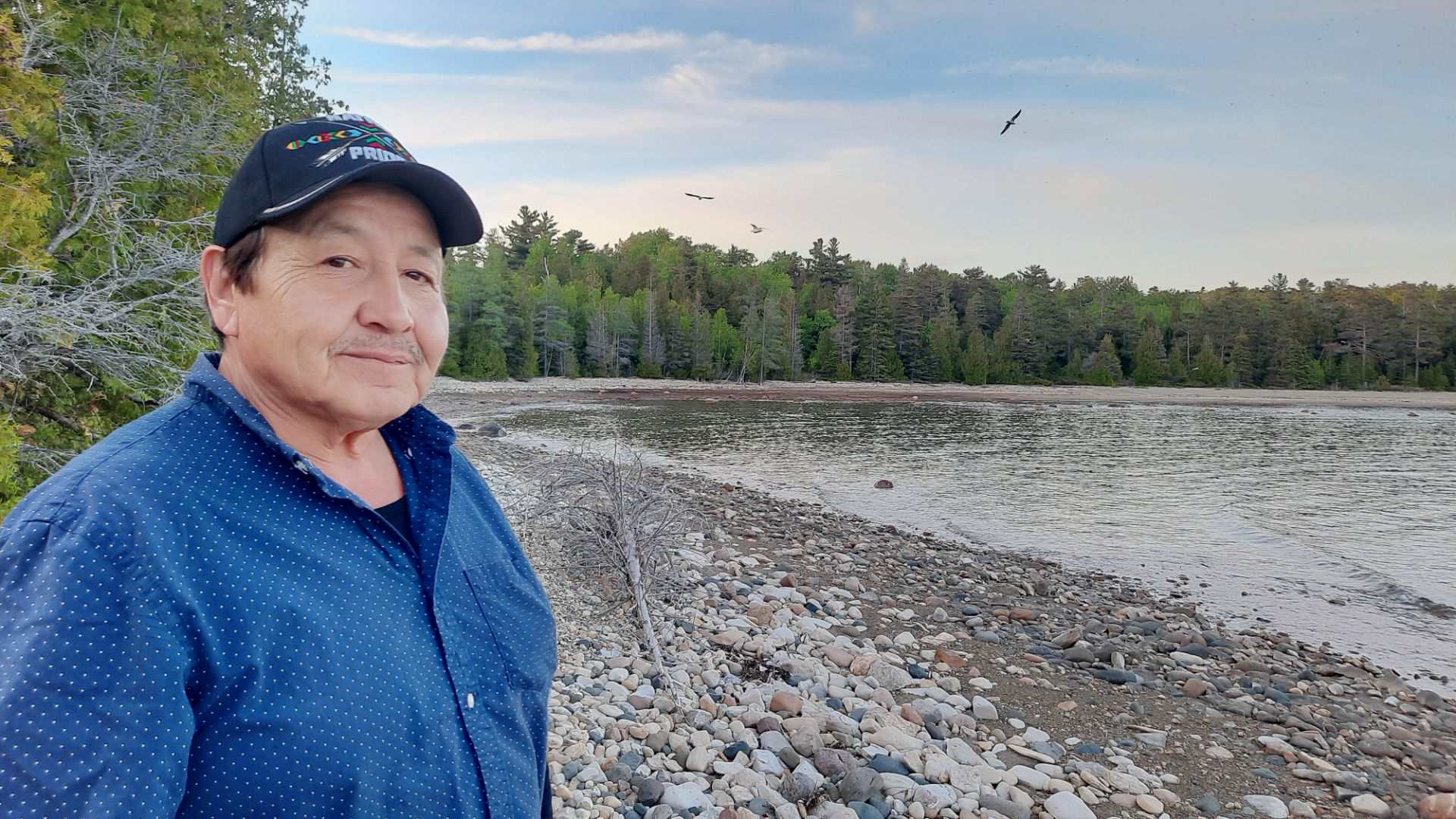Henry Pitawanakwat is part of the official translation team for the papal visit to Canada. A language keeper from the Three Fires Confederacy, Wiikwemkoong Unceded Territory on Manitoulin Island, Pitawanakwat is an Anishinaabemowin speaker — fluent in Ojibwe, Odawa, Potawatomi, Chippewa and Algonquin. He has translated for other public events, including the 2019 and 2021 federal election debates.
He spoke from Ottawa with Broadview’s digital editor, Emma Prestwich, about preserving Indigenous languages and being an Ojibwe translator for the Pope’s visit.
Emma Prestwich: How did you become part of the translation team?
Henry Pitawanakwat: I have been involved in my language for many years. I was born fluent. I noticed that we are losing the language very rapidly. Our language is very special. It holds a lot of knowledge, a lot of solutions to today’s problems, to climate change, the condition of the land, social issues, condition of the water — the list goes on.
There’s so much that my ancestors have been telling the scientists and the world for so long and we’ve been ignored. And now it’s evidence of the destruction that my people have warned about. I think the language holds the solutions to fixing this planet for future generations.
EP: How can Indigenous languages be preserved?
HP: It is my dream to get some kind of retribution from Catholic society, something that can help us save our language and culture. This is what I specialize in right now. But we’re in serious trouble with it. Every time an elder dies, I feel it in my heart. It means another language keeper gone. That is causing me great concern. And the social issues in the communities with suicides and overdoses, that is also causing me a lot of concern. I have left a good job in Toronto with Native Child and Family Services to go home [to Manitoulin] and help my community in these areas.
EP: What kind of work are you doing on Manitoulin?
HP: We’re opening up a land-based language program in Wiikwemkoong. It’s an immersion farm where we’re trying not to use any English. There’ll be so much we’re going to add on as we go along — we’re bringing in horses for healing therapy and stuff like that.
EP: What has it been like for you to translate during the Pope’s visit?
HP: We have 22 Indigenous translators translating 12 Indigenous languages. Every one of us has been traumatized in the past. As you know, the language keepers would be older. We have to do our own healing over here, helping and supporting each other. We have mental health workers available. It is a big event that’s causing a lot of trauma to my people all across Canada, bringing back triggers. It is a painful situation.
EP: Has one particular moment been difficult?
HP: I was very offended when they put the headdress on the Pope. That is something sacred to our people. Why would they put it on somebody that had caused a lot of atrocities to our people? I don’t understand. It hurt my heart.
My mother had spent 13 years in the residential school and it has affected my whole family. I was lucky, because my dad was completely traditional. He often took the time to set us aside and explain to us what was happening, that she had picked up these character defects from that school she went to, which was the Spanish Residential School.
More on Broadview:
- Inuit organization president on hearing the Pope’s 1st apology for residential schools
- Tseshaht First Nation leads search for unmarked graves at residential school site run by United Church
- Indigenous peoples have been here far longer than previously thought: Cree-Métis archeologist
EP: Have you seen efforts from the provincial or federal governments around Indigenous languages?
HP: There is. But we have many, many different communities across Canada, and [so] the amount [the governments] offer is peanuts… They don’t know the seriousness of the issue and the amount of funding that we need. We need to create some immersion schools, bring back cultural activities. There’s so much involved.
And this is where I’d like to see some kind of retribution from the Catholic society. Help us with the funding. Help us create immersion schools. You took the language away from us. [Children] were severely punished for even speaking the language in those schools. I’ve heard many, many stories through elders and people that have been traumatized through these residential schools and I’ve observed the damage it has done to the communities. Our youth are lost. They don’t know who they are. We need to bring this back to our own people.
***
This interview has been condensed and edited for clarity.
Emma Prestwich is Broadview’s digital editor.















